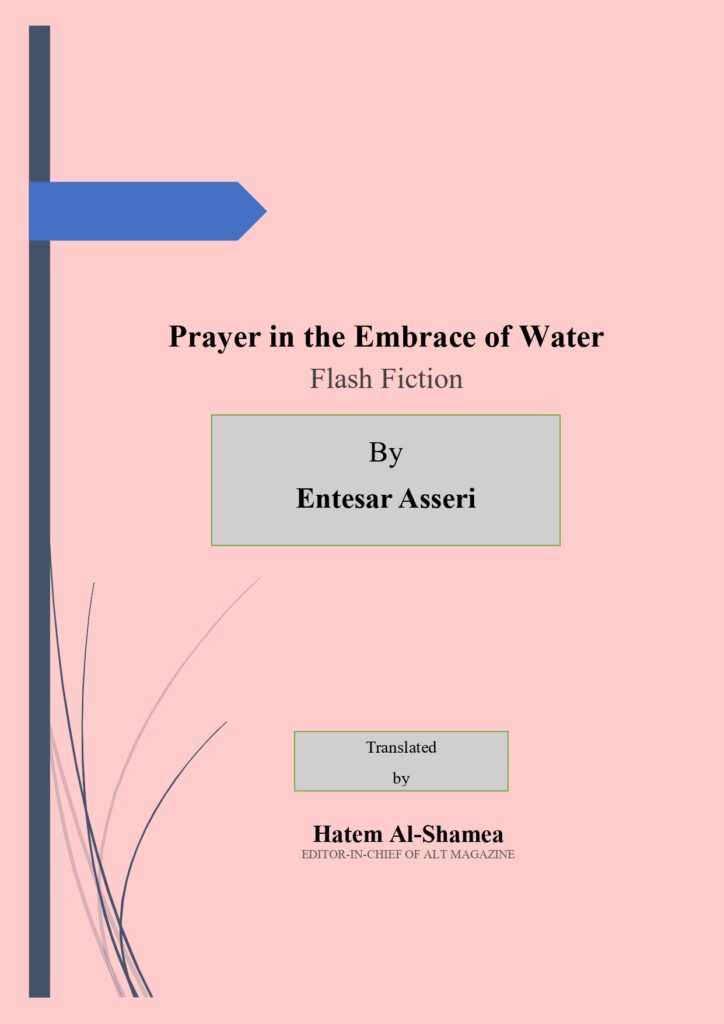By
Hatem Al-Shameahttps://golpapa.com/product/will-to-power-by-hatem-mohammed-al-shamea-non-fiction/
I. Introduction
Entesar Asseri (b. 1984) is a pioneering contemporary Yemeni short story writer, one of the first women authors in her society to critically examine gender inequality. Her bold feminism provides perceptive critiques of women’s issues in Yemen. This analysis will examine her short story “The Hole,” is one of the collection short stories, The Bonfire (2020), translated into English by Hatem Al-Shamea and published in 2020 by Notion Press. Using a feminist literary criticism approach reveals how Asseri employs symbolic setting, exaggerated male characters, and the female psyche to condemn the confinement of women under Yemen’s patriarchy, recently controlled by Houthi rebels.
“The Hole” depicts a bus plunging into a sinkhole between Bab Al-Yemen and Al-Hasabah Streets, representing the pitfalls engulfing women in Yemen. The time is during the recent war leaving the country’s infrastructure in ruins. Asseri uses this vivid scene to critique a patriarchal society limiting women’s mobility and agency.
II. Feminist Analysis
The Feminist Lens on Setting and Symbolism
The setting depicts a Yemeni public space controlled by men. The bus stop is chaotic, with obstructionist male vendors and negligent policemen causing congestion (Al-Shamea 45). The holes littering the roads reflect infrastructure crumbling under irresponsible male leadership. The bus functions as a symbol of patriarchy, promising safe passage but violently crashing when the male driver ignores his duty to protect female passengers. Critic Rachel Blumenthal argues settings in feminist texts reflect “gender hierarchy” and confinement under patriarchy (224). Asseri uses setting to stress that Yemen’s male-designed public landscape is inhospitable and hazardous to women.
When the bus falls into the sinkhole, the female passengers are plunged into a muddy pit, their lives endangered by reckless masculinity. The hole symbolizes women’s vulnerability in Yemen’s patriarchal order. Critic Suzanne Juhasz notes feminist spaces often represent “enclosure” and “entrapment” (249). For Asseri, the chaotic bus stop and gaping sinkhole show how Yemen’s male-dominated public sphere only superficially offers women transit while threatening to subsume them.
Patriarchal Caricatures
The male characters in “The Hole” are caricatures embodying the dangers of patriarchal authority. The bus driver has bulging qat-filled cheeks, highlighting his lack of control (Al-Shamea 45). His yelling and reckless driving dangerously assert masculine dominance without caring for the powerless passengers. The vendors flout regulations, indicating a lawless society where men disregard rules meant to protect women (Al-Shamea 45). The absent police imply male authority disempowers women by denying them justice.
Feminist scholar Helen Cixous argues caricaturing men “‘smash\[es\]’ the patriarchal system” (43). By using exaggerated stereotypes, Asseri rebels against reverent patriarchal portrayals of men. She critiques a structure where men pursue self-interest while leaving women like the passengers unprotected.
The Female Psyche Under Patriarchy
Although silent, Asseri offers glimpses into the women’s psyche through the protagonist who “meekly” requests her change (Al-Shamea 45). Her timid plea reveals awareness of injustice, yet inability to openly challenge it due to engrained obedience under patriarchy. Her clutching her bag shows constant vigilance against male predation (Al-Shamea 45). By demanding her exact change, the protagonist proves women’s self-determination, but also self-regulation under confinement. Asseri reveals women’s double consciousness – desiring agency while conditioned to accept patriarchal limits.
Conclusion
Fifty years after publication, “The Hole” remains relevant by dramatizing Yemeni women’s decentering under patriarchy. Asseri’s vivid symbolism sounds the alarm on pitfalls for women under irresponsible male authority. Her courageous writing inspires action for gender justice in Yemen and beyond.
IV. Works Cited
Asseri, Entesar. Trans. Hatem Al-Shamea. The Hole by Entesar Asseri. Notion Press, 2020.
Blumenthal, Rachel. “Settings as Symbols in Feminist Short Stories.” Journal of Women’s Studies, vol. 25, no. 2, 1998, pp. 223-231.
Cixous, Helen. “Castration or Decapitation?” Signs, vol. 7, no. 1, 1981, pp. 41-55.
Juhasz, Suzanne. “Texts to Grow on: Reading Women’s Fiction.” Tulsa Studies in Women’s Literature, vol. 7, no. 2, 1988, pp. 243–260. JSTOR, www.jstor.org/stable/464139. Accessed 23 Feb. 2023.


